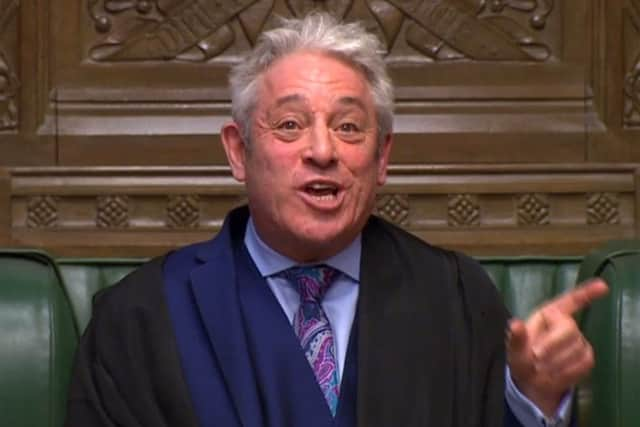Brexit: What happens next as politicians gear up for crucial vote
The vote had been scheduled to take place in December but was called off at the 11th hour with Government victory looking unlikely.
MPs continue to be divided on the plans, with a number of pro-Remainers calling for Mrs May’s deal to be voted down, and some ardent Leavers pushing for the same result to ensure a no-deal Brexit.


Advertisement
Hide AdAdvertisement
Hide AdSo what happens next? The simplest outcome to plot comes if the Government wins the vote on the Withdrawal Agreement.
In this instance, the UK would leave the European Union on 29 March and debate would move on to the terms of a future trade deal with the EU, which would need to be negotiated by the end of 2020 to avoid triggering the Irish border backstop, keeping EU customs rules in place.
However, despite a small number of critics now saying they will support the deal, it is still expected to be defeated by a wide margin.
Following a government defeat, a whole host of scenarios could play out.
An amendment passed by Parliament means that the Government must come back with their Plan B three days following the vote.
It isn’t clear whether Theresa May would stay on if she loses, or resign. Could plan B under a new Prime Minister include discussion about a free trade agreement, customs union, membership of the single market or even a second referendum on the deal?
The prospect of Labour putting forward a vote of no confidence in Mrs May has been mooted and a general election could take place should the Government lose. Some opposition MPs, led by the SNP and Liberal Democrats, are also seeking a so-called People’s Vote.
The Government could also ask for an extension to Article 50 - which would have to be agreed by the remaining 27 members of the bloc.
Advertisement
Hide AdAdvertisement
Hide AdHowever, EU member states are only expected to grant this if the UK is ready to abandon the red lines that have made reaching a deal such a challenge.
Should the EU not agree to a postponing of Brexit then the UK would leave the EU without a deal on 29 March, with warnings of significant damage to trade. Currently, that deadline is the only legal certainty.
